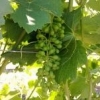-
Welcome to the eG Forums, a service of the eGullet Society for Culinary Arts & Letters. The Society is a 501(c)3 not-for-profit organization dedicated to the advancement of the culinary arts. These advertising-free forums are provided free of charge through donations from Society members. Anyone may read the forums, but to post you must create a free account.
Imitation vs Natural Vanilla Extract
-
Similar Content
-
- 462 replies
- 163,344 views
-
- 56 replies
- 16,126 views
-
- 12 replies
- 2,620 views
-
- 15 replies
- 2,987 views
-
- 7 replies
- 2,127 views
-
-
Recently Browsing 0 members
- No registered users viewing this page.





Recommended Posts